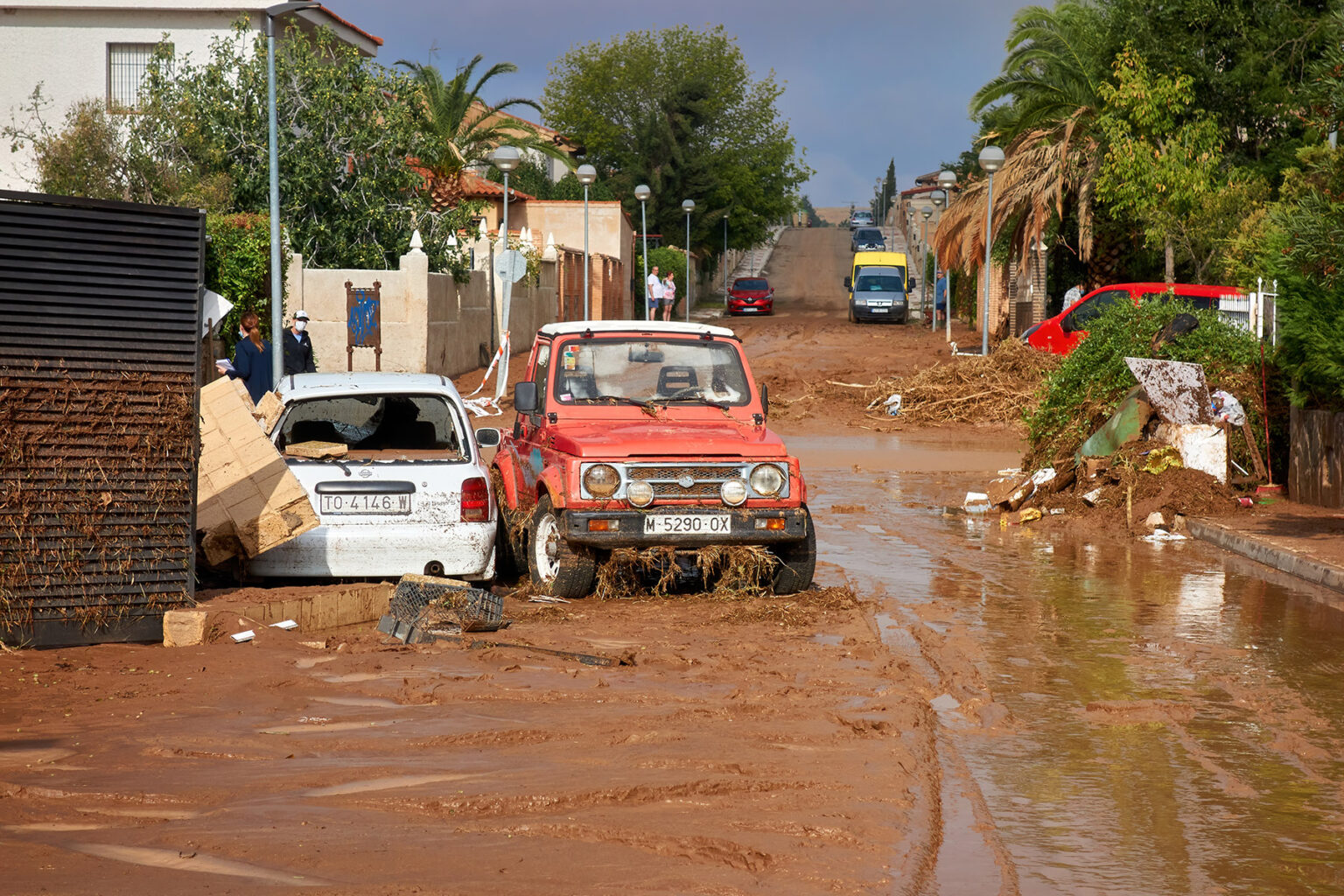Knowing which insurances are mandatory in Spain and tackling the paperwork to get Spanish insurance can be a challenge for those relocating to Spain.
This article offers an introduction to insurance in Spain for expats, including information about what the law requires and what you might need in addition to the compulsory Spanish insurances. Sections include:
Linea Directa
Getting behind the wheel in Spain? Speak to the insurance experts at Linea Directa and get yourself covered today. Whether you drive a city-center runaround or you're planning a road trip across the beautiful Spanish countryside, choose the right premium for you and your driving needs with Linea Directa today.
Overview of Spanish insurance
The Spanish insurance market ranks among the top 15 in the world. The value of premiums taken out in Spain in 2018 was €64.4 million, which is a 1.5% increase on the previous year.
The most popular types of insurance in Spain are car insurance, health insurance, and life insurance. Multi-risk home insurance covering building, contents, and liability is also popular.
Insurance companies in Spain are regulated by the Directorate-General for Insurance and Pension Funds (Direccion General de Seguros y Fondos de Pensiones – DGSFP), which is part of the Ministry of Economy and Business. Around 98% of Spanish insurance companies in Spain are members of the Spanish Association of Insurers (Asociacion Empresarial del Seguro – UNESPA).
You can see a list of popular expat insurance companies in Spain in the Expatica company directory, and you can compare them online with services such as Acierto.com.
Which insurance in Spain is legally required?
Car and motorcycle insurance
Local law requires a minimum level of car insurance in Spain, called seguro a terceros. This covers damage to third parties, fire and theft. If you want comprehensive insurance, you should opt for seguro a todo riesgo, which will cover damage to your car, the other car and other matters arising.
Lower monthly payments may be available if you have proof you haven’t made a claim for several years and/or are willing to pay a higher excess (franquicia). In some cases, you might be able to present your accident or insurance history from your previous country of residence. Car insurance companies in Spain include:
- AXA
- Caser Seguros
- Linea Directa
To drive in Spain, you may need to get a Spanish driver’s license once you are a resident. Additionally, you will need to learn the road rules for driving in Spain.
If you ride a motorcycle in Spain, you’ll also need a minimum of third-party liability insurance. Policies can also cover you for theft and roadside assistance. Companies offering this type of coverage include Linea Directa.
Other vehicles require insurance to operate legally, including trucks, RVs, boats, and planes. However, bicycles do not need insurance.
Health insurance
Spain has a state-run healthcare program, which provides free healthcare for all Spanish residents. If you qualify to access the state system as a resident, it will be covered by your mandatory social security contributions in Spain.
Many expats choose to add optional private health insurance to their budget. The benefits of this include greater choice and shorter waiting times.
In addition to this, private insurance may also give you more access to English-speaking medical professionals. There are a few international health insurance companies popular with expats, including:
See our guide to health insurance in Spain for more information.
Social insurance
Spain, like many other European countries, has a social security system where all employees and self-employed workers earning at least minimum wage have to contribute social security payments each month. In addition to healthcare, social security in Spain includes:
- work-related sickness or injury
- family and child benefits, including parental allowance
- invalidity benefit
- old-age pension
- unemployment benefits
See our guide to social security in Spain for more information.
Optional forms of insurance in Spain
Dental insurance
Dental work in Spain is not typically covered by health insurance policies. However, you can add it as a supplement or take out a separate dental policy. Study the costs and benefits of a dental insurance policy carefully before taking it out as some simply offer a discount on services.
Although a 50% discount may seem attractive, consider how often you’ll use the policy and whether it costs more than your annual check-ups and cleaning.
In addition to this, you may also be locked into a single network of providers – if so, you might want to check if your nearest English-speaking dentist in Spain is on the list before you sign.
At the low end, dental insurance can start from around €10–€20 per month. However, packages that include more specialist treatment such as implants will be more costly.
Home insurance
Building insurance is not a legal requirement, but it is often recommended if you buy a property in Spain. Your Spanish mortgage provider may insist that you have building insurance, and will often offer you their in-house deal. However, you are not required to take this and can shop around for more competitive options. Home insurance providers in Spain include:
Look for cover that insures against natural disasters, fire, flood, and other damage. In addition to this, new builds should already have coverage against defective workmanship.
Apartment buildings often have insurance included in their service charges. This insurance is not a replacement for building insurance, so not make any assumptions about the cover without fully understanding the policy details.
Contents insurance
You are not legally required to have contents insurance in Spain. Because of this, around eight million Spanish homes don’t have contents insurance. Furthermore, many more are under-insured.
However, if you expect to rent your property or often leave your house empty – for example, if you travel – you might feel more secure with insurance. Many insurers cover portable goods (such as mobile phones, laptops, and bicycles) outside the home for an additional fee.
Unemployment and injury insurance
Government-run programs assist the unemployed and those in poverty in Spain, but foreigners should check if Spain’s social safety nets are available to them.
You should investigate how much you might receive under Spain’s unemployment scheme compared to the costs of unemployment and injury insurance. You can get this cover through your health insurance provider, pension fund, or separately.
Life insurance
Life insurance is one of the most common types of insurance among Spanish residents. It is not compulsory but it provides for your dependent family relatives (e.g., spouse and children) in the event of your death, either as a lump sum or regular payments.
Life insurance can cover things such as mortgage payments after your death and one-off costs such as funeral costs. It’s advisable to shop around and find the best deal based upon what you want your policy to cover.
Pet insurance
If you have a pet in Spain, insurance for domestic animals typically covers medical expenses. In addition to this, it may also cover burial or cremation expenses, travel, and theft. Some services may also include assistance for finding lost pets.
Travel insurance
A minimal level of travel insurance (seguros de viaje) may be covered by private health insurance: check the level of cover offered. If you regularly travel abroad, undertake extreme sports (including skiing or cycling) or visit for extended periods, you might consider topping up with specialized travel insurance.
Single-trip, multi-trip and annual options are available and can cover long trips up to 120 days. Insurance may also cover problems that arise with your trip, such as canceled flights.
Commercial insurance in Spain
If you are running a business in Spain, you’ll need to check that you’ve got adequate business insurance. Insurances for businesses and freelancers in Spain include:
- Business liability insurance – all businesses need protection in the form of public liability insurance. This covers you for accidents, injuries and damage to third parties that occur on your premises or due to your business activities. In addition, you can opt for extended coverage against financial or reputational damage caused by your business actions or decisions.
- Premises insurance – this protects your business premises against damage caused by fire, floods, natural disasters or vandalism. It is not compulsory for all businesses but many landlords insist their tenants take it out.
- Contents insurance – this covers all movable equipment against theft and damage. However, it won’t cover vehicles, which need to have a separate vehicle insurance policy.
- Business interruption insurance – if your business faces a financial loss due to unexpected closure, this can cover operational costs including employee salaries.
Spanish insurers offering these types of policies include INSURCEO.







